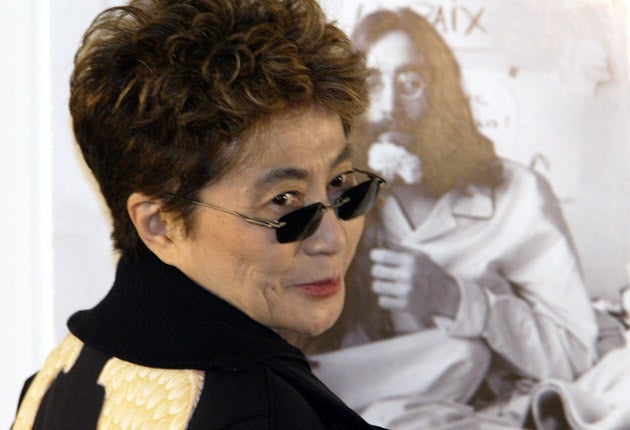The Week in Radio: If music be the food of love, play on

Your support helps us to tell the story
From reproductive rights to climate change to Big Tech, The Independent is on the ground when the story is developing. Whether it's investigating the financials of Elon Musk's pro-Trump PAC or producing our latest documentary, 'The A Word', which shines a light on the American women fighting for reproductive rights, we know how important it is to parse out the facts from the messaging.
At such a critical moment in US history, we need reporters on the ground. Your donation allows us to keep sending journalists to speak to both sides of the story.
The Independent is trusted by Americans across the entire political spectrum. And unlike many other quality news outlets, we choose not to lock Americans out of our reporting and analysis with paywalls. We believe quality journalism should be available to everyone, paid for by those who can afford it.
Your support makes all the difference.Literary festivals are everywhere now. They've seeded themselves across the country like benign ground elder, sprouting in tents and town halls, and in the case of Radio 3's Proms Literary Festival coverage, the slim crevice of the evening interval. The idea is to provide a bookish counterpoint to the day's musical theme and so far we've had entertaining discussions on Pepys and Chekhov. On Sunday, sandwiched between Berlioz's Romeo and Juliet and Wagner's Tristan and Isolde, the theme, inevitably, was love.
Squeezed into their 20-minute slot, Howard Jacobson and Mary Beard fizzed like a couple of highly reactive chemicals. Talking about what makes a great love story, Jacobson seized the argument with operatic exuberance. "Great love stories are about wanting to die! If you asked Tristan to describe Isolde he wouldn't have a clue what she looked like. They are interested in gaining a love through immortality, they want to die, sex is about death!" Not to be outdone, Mary Beard upped the tempo by choosing "Eurydice" by Carol Ann Duffy. To her it was "feminist realism", to him it was "vile". "I loathe it. It's sneering. If a man wrote about a woman like this they'd be up in arms!" There were readings of great love scenes, including an understated excerpt from Persuasion, "I almost swoon hearing it," Howard commented con brio, and the two continued to crackle and spark off each other with the kind of intellectual dazzle that made it a real advantage to be listening to the Proms from home. Far more satisfying interval sustenance than a glass of white wine and an over-priced ice cream.
A rather more understated meditation on Jane Austen came in Something Understood, where Tom Robinson was examining the yearning to be rescued in romantic love. This kind of offbeat idea is typical of Radio 4's ethical and religious programme, which examines the "big" questions of life through a smörgåsbord of music, poetry and readings. More's the shame it's tucked away at the very edges of the schedule. Searching for answers on romantic love, Robinson read from Robert A Johnson's take on Tristan and Isolde, "In the aspirations of romantic love there is a deep psychological truth that reverberates in our souls and awakens us to what we are at our best." Which was very inspiring, until he quashed it with an extract from a book called The White Knight Syndrome which suggested, "The compulsive rescuer is trying to repair a damaged sense of self that appeared in childhood."
Childhood damage was at the heart of the love between John Lennon and Yoko Ono, according to John Harris, in a psychologically probing Great Lives to commemorate the 50th anniversary of The Beatles. Harris's thesis was that Ono – whom Lennon called "Mother" – had a detrimental effect on his music and sent his artistic life into decline. Much of Lennon's need for her, he thought, sprung from the trauma of losing his own mother, first in childhood, then when she died. Barry Miles, the man who introduced them, said Yoko "saved John's life", but Harris argued that Yoko had merely co-opted him into "the more moronic silly episodes of the avant garde", while ending his ability to be universal.
More meditations on love came from Mr and Mrs Smith in Radio 4's late night Happy Tuesdays slot, a series whose reviews thus far must have prompted some horribly unhappy Wednesdays. Written by Will Smith, who starred as the Conservative aide in The Thick of It, the scene was a marriage-guidance session. She was unsatisfied – he gave her a draining rack for their first anniversary – he was unsatisfactory: "I only feel like a man when I'm playing Call of Duty". Their romantic mini-break was predictably disastrous. It was, I suppose, the kind of humour you can multi-task to. Gently amusing, and Smith will undoubtedly go on to write slicker and faster material.
Join our commenting forum
Join thought-provoking conversations, follow other Independent readers and see their replies
Comments